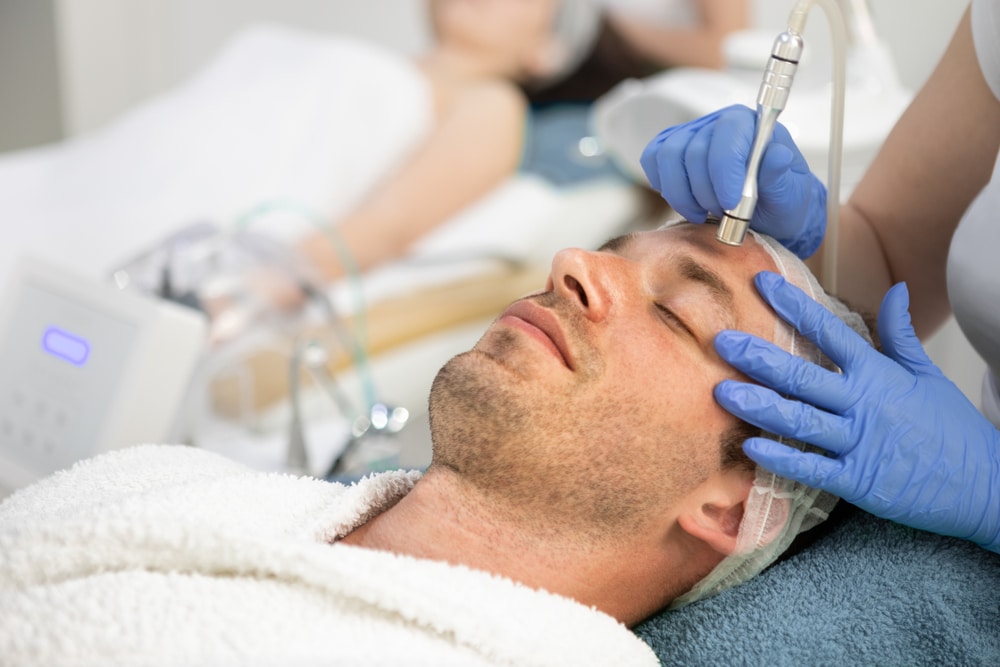
Important Details About Microdermabrasion
Go BackWhat Is Microdermabrasion?
Microdermabrasion is a light exfoliation that removes only the upper layers of dead skin. Afterward, your body can replace lost skin cells with healthy new cells. The procedure is non-invasive, stimulates your blood flow, and often improves your cell production. The result is an improvement in the texture and elasticity of your skin. There are currently numerous types of microdermabrasion treatments.
The traditional process blasts dust made of fine crystal onto your skin. The dead skin is then scrubbed away. There are also rough tips capable of gliding over your skin for buffing away dead skin. Other treatments exfoliate before infusing products into your skin.
Benefits of Microdermabrasion
When performed properly, the overall result is smoother skin. Microdermabrasion can also stimulate the production of collagen, decrease congestion, and fade pigmentation. The majority of skin types benefit from the process of microdermabrasion. If you have problematic or sensitive skin, you need someone with a lot of experience to perform the procedure.
The benefits for general congestion, mild acne, and mild acne scars are exceptional. If you have severe acne, microdermabrasion might irritate your skin. The best option is to consult with someone offering multiple treatment options capable of determining the right one for your needs.
The majority of devices used for microdermabrasion allow for a change in intensity. This means you can receive a gentler treatment if you have sensitive or delicate skin. If you are able to tolerate a stronger approach, your goals can be reached faster with stronger treatments.
Microdermabrasion is not recommended for specific skin conditions including:
• Lupus
• Eczema
• Psoriasis
• Herpes
• Extremely serious acne
• Rosacea
• Open sores
• Active sunburn
• Fragile capillaries
Is Microdermabrasion Safe?
If the procedure is performed by an experienced professional then yes, microdermabrasion is safe. All advanced skin treatments have a risk of some short-lived irritation, dryness, and redness. The procedure is not painful, although some find it a little uncomfortable. You may experience slight redness or tenderness right after your treatment.
If the process is overdone, your skin can be damaged resulting in additional sensitivity and irritation causing inflammation. This can result in broken veins or pigmentation. Long-term damage is rare but reputable and experienced clinics are recommended.
Are At-Home Microdermabrasion Kits Safe?
If you purchase a reputable brand and use the kit correctly, it is safe. Be cautious the first couple of times to test the reaction of your skin. The key difference between an at-home kit and a professional treatment is dermatologists use devices with more power and deeper penetration for precise exfoliation.
If you have sensitive skin, one of the most popular options is a microdermabrasion cloth because it is a softer alternative.
How Much Does Microdermabrasion Cost?
There is a variation in prices depending on the specialist. The majority of treatments last for approximately 30 minutes and are reasonably priced. Your cost also depends on the type of machine used.
To learn more about what microdermabrasion can do for you, call us to schedule a consultation at the Straith Clinic in Bingham Farms, Michigan with Drs. William Sabbagh and Marissa Baca or our expert aestheticians.

